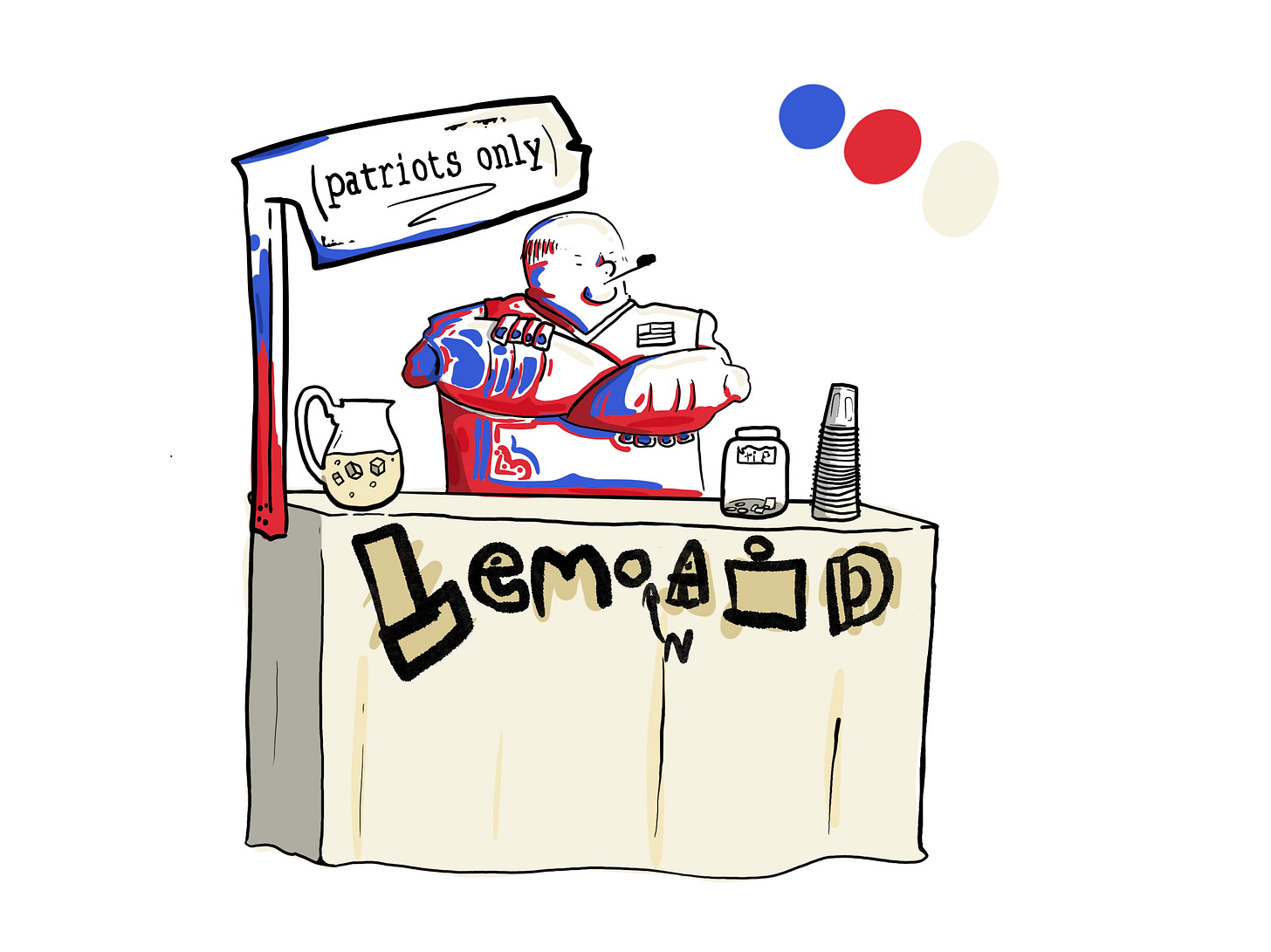In 1767 Britain passed the Townshend Duties, which levied taxes on certain exports to the colonies—including, as it happens, tea. This was, to the Americans, another unjust tax, passed without their consent. It was another step on the escalator to war and independence. To push back, they opened the still dust-free pages of the playbook used to defeat the Stamp Act (1765), and put its methods into action: pamphlets; petitions for redress; and—even more important this time—nonimportation. Refuse to buy the taxed goods; do without, or “buy local.” British manufacturers would feel the pinch, and convince Parliament to repeal.
To this plan, the zealots—Samuel Adams in Boston, You-Know-Who in Virginia—signed up immediately. But nonimportation wouldn’t work unless everyone played ball. The application of social pressure would be required. To coordinate this, nonimporters signed agreements, and those agreements contained, after the standard nonimportation promise, promises to shun non-signers:
we will look on every inhabitant of this colony, who refuses or neglects to sign this agreement within one month from the date hereof, as no friend to the true interest of the colony, and we will, upon no account, at any time thereafter, purchase from, or sell to such person, any goods or merchandize whatsoever. (South Carolina agreement; italics in original)
In today’s terms: non-signers were to be canceled. To facilitate this, lists of non-signers were printed and distributed.
Just how cancel-y were these cancellations? Some core features of today’s cancel culture were missing, maybe: the exaggeration of minor misdeeds (or mere rumors thereof) into generational acts of evil; the calls for the cancelee to lose their job; the issuing of personal threats. But then again maybe not: there was indeed a refusal to acknowledge that opponents might share your goals—end the taxes—and, with reason, reject your means—“every” non-signer was no friend to the true interest etc; there was also the publicizing of opponents “sins,” to increase the pressure upon them. And nonimportationists were not above more strong-arm tactics. Samuel Adams’ Committee on Correspondence was, some say, in fact a proto-terrorist cell.
Keep reading with a 7-day free trial
Subscribe to Mostly Aesthetics to keep reading this post and get 7 days of free access to the full post archives.




